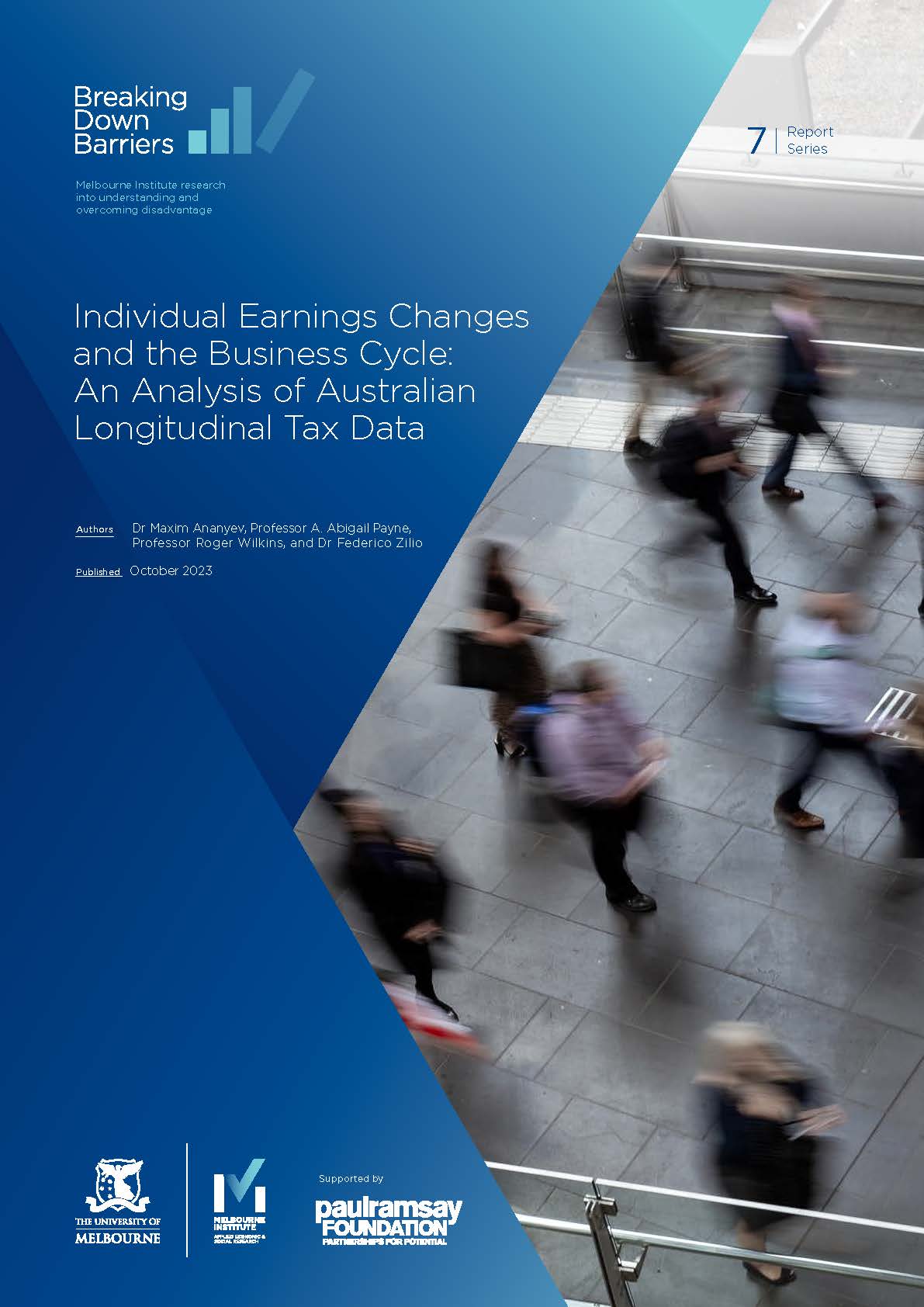Individual Earnings Changes and the Business Cycle
This report studies the relationship between earnings changes and business-cycle fluctuations in the Australian economy.

Poverty increases during recessions and declines when the economy grows. This is because when employment is high and wages rise, there are greater opportunities for people to increase earnings and income. But when unemployment is high and wage growth is sluggish, poverty rates tend to rise because people with low earnings face more difficulties.
Understanding the relationship between macroeconomic conditions and earnings changes is important when creating policies to effectively fight poverty.
This analysis emphasises that macroeconomic policy is crucial to the fortunes of low-earning people. Policies that promote employment and productivity growth can greatly benefit people at risk of poverty, while macroeconomic mismanagement or other sources of economic contraction disproportionately hurt low-income earners.
In short, low-earners’ incomes are more sensitive to the business cycle than higher-earner incomes.
Our analysis studies differences in earnings changes for people at the bottom and top of the earnings distribution, for males and females; and in the four most populated states in Australia.
Read the full report Request a briefing
AUTHORS
Dr Maxim Ananyev
Professor A. Abigail Payne
Professor Roger Wilkins
Dr Federico Zilio